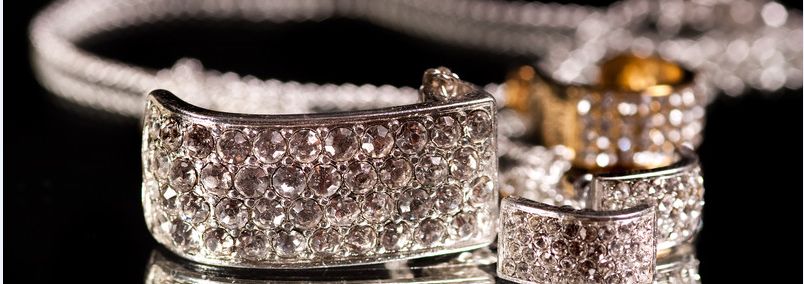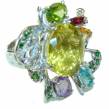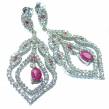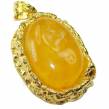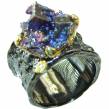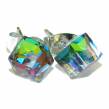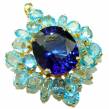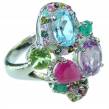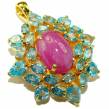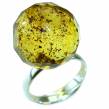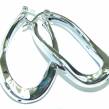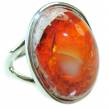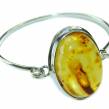Is Your Jewelry Good for You?
- November 29, 2013
- Fashion Tips
- Leave a comment
- allergic reaction to jewellry, allergies, metal allergy, piercing, skin-irritating metals, tattoo
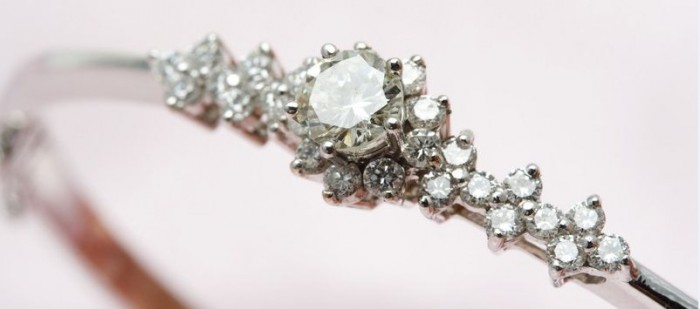
How to tell and what to do if you are allergic or sensitive to your jewelry and other items
Just like food allergies, irritation and allergies from metal can happen to anyone and once they occur, a person will have it for life. Different types of jewelry or accessories such as belts and hair clips can cause a reaction to skin called “allergic contact dermatitis” if it is made with certain metals, but the most common type of metal to irritate skin is nickel.
How are we allergic to different types of metal?
Even though nickel is the most common type of metal to create an allergic reaction, people tend to have similar reactions to cobalt and chromate because they are often combined with nickel as well. Metal allergies can happen at any age and are triggered when the immune system over-reacts to a foreign substance such as when the skin comes into direct contact with the metal. A short-term allergic reaction can lead to painful rashes and swelling. Long-term exposure can cause the skin to darken and even create a cracked and leather-like appearance. In other extreme cases, blisters can occur that can break and lead to skin infections.
Are you allergic to your jewelry?
Again, you will notice mild to severe skin irritation, but also discolored skin can be noticed within 6 to 24 hours of coming into contact with a piece of jewelry containing nickel or a mix of it with cobalt and chromate. When nickel is combined with sweat, it increases the amount of oxidization that occurs which in return increases the likelihood of skin irritation including cause the area affect to become a tint of green.
As soon as you see any signs of skin irritation, be sure to visit a dermatologist or health care professional who can administer a skin patch test. The patch will be applied to your upper back for 48 hours in order to see if any type of reaction will occur.
What other items contain skin-irritating metals?
Besides jewelry, nickel can pretty much be found in any man-made product including coins, zippers, and eye glasses. Because Nickel and cobalt are often found together in different salts and alloys, it’s difficult to separate both metals. Many everyday items such as hair dyes, makeup, and antiperspirants can contain cobalt and chromate in the ingredients. Be sure to read the ingredients on packaging for such items before making a purchase. Many different products that are green or yellow-green contain chromate include makeup, but also:
- Fabric felt snooker and card tables
- Tattoo ink pigments
How to reduce allergic reactions to metals
If your dermatologist can confirm that you are indeed allergic to nickel and any combination of it with cobalt and chromium, there are some steps you can take to reduce the number of allergic reactions. First, narrow down the pieces of jewelry or any other metal-containing products that irritate your skin. Replace nickel jewelry with pieces that contain silver compounds and do not wear any cheap costume jewelry. Swap out other clothing items that include nickel anywhere include bra straps and hooks, buttons, or watches for skin-friendly materials such as plastic or leather. If you are allergic to an irreplaceable item such as a wedding ring, ask a jeweler if they can coat it with plastic or if they suggest another way to protect your skin when you wear it. Another simple solution is to coat any of your jewelry or other personal belongings with clear nail polish.
To help with any allergic reactions to metal, there are different forms of medication available including hydrocortisone cream and antihistamine pills at a drugstore or steroid cream that is prescribed by a doctor.
A couple of tips for the future: piercings, tattoos, and careers
Not just jewelry or other personal belongings can trigger an allergic reaction from nickel, chromate, and cobalt metals. If you plan to get a body piercing or tattoo someday, here are a couple of tips to keep in mind to stay clear of any skin irritation that can be easily prevented. Make sure you go to parlor with great reviews and one that uses sterile and surgical-grade stainless steel instruments. You may want to avoid piercing guns and any tattoo ink that is green or yellow-green because they may contain nickel or chromate.
Your career may also have a helping hand with causing your skin allergies without you even realizing it. If your career includes you coming into contact with these metal containing items with the following job titles:
- Woodworker
- Including working with pulp and paper
- Potter
- Photographer
- Chef
- Hair stylists
If you work in an office with a keyboard or use paper clips that include nickel, those could also create a reaction.
If equipment and items cannot be replaced, be sure to wear protective clothing such as gloves made of vinyl or rubber, coat keys with clear nail polish, or think of different ways to not touch such items.
You may also like ...
- How Does A Gemstone Appraisal Work?
- Just How Well Will A Jewelry Cleaning Recipe Work? The Best Methods To Try To Clean Gems At Home
- The Most Valuable Gemstones You Never Knew Existed
- What You Don’t Know About Silver: It’s Antimicrobial?!
- Top Household Jewelry Cleaning Tips For Silver Jewelry
- How Are Synthetic Gemstones Made And How Are They Different?

